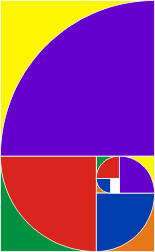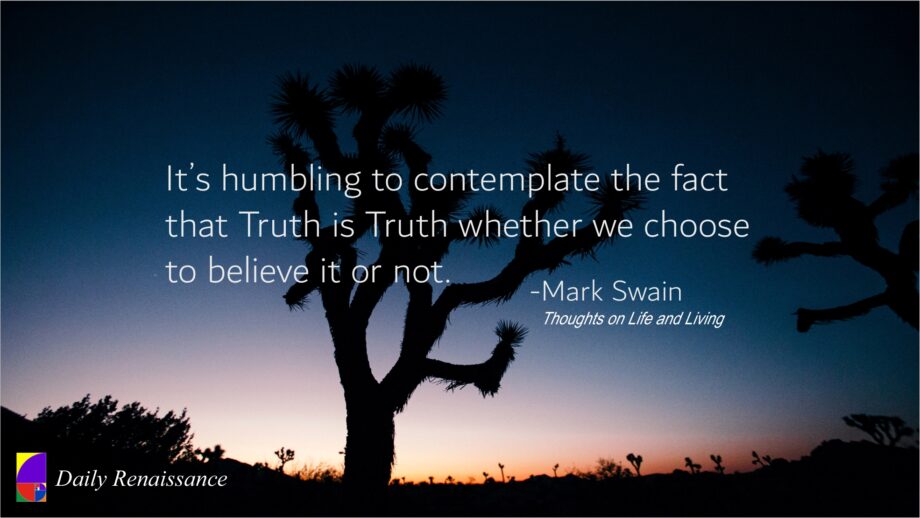I read Walden for the first time in college. Thoreau’s “magnum opus” had a transformative effect on my thinking. I have since reread Walden many times—most recently just a couple of months ago. I have also visited Thoreau’s cabin site on the shore of Walden Pond a number of times. Many of Thoreau’s observations on life and living continue to resonate deeply with me. Among my favorite passages from Walden is this one: “Rather than love, than money, than fame, give me truth.” Wow—I’m sure many people would prioritize that list differently.
Throughout recorded history, a perennial question has been: “What is truth?” Among the formal definitions of truth you can find doing a quick search are these: 1)Truth is the property of being in accord with fact or reality. 2) Truth is a fact or belief that is accepted as true. That second definition of truth—“belief that is accepted as true”—has led to a lot of problems in this world.
Pick almost any subject for discussion, and you are likely to find disagreement on where the actual “truth” lies. There are many current examples of this in our society. Here are some of reasons why this is—and has always been—so.
Some people “know” they already have the truth. Sometimes people get so caught up in their own “arrogant ignorance” that they assume they already have the truth—all of it. “Don’t confuse me with the facts. I’ve already made up my mind.” Have you ever been guilty of this mindset? (I know I have…)
Some people don’t consider finding truth a priority. All human beings live according to a personal hierarchy of values—some consciously, some not.
Some people don’t want to put in the effort. Finding truth is not always easy. That’s why many people rely on others to tell them what to believe. Such a strategy can leave people especially vulnerable to manipulation and control by those who don’t necessarily have their best interests at heart. And who do people have a tendency to listen to? Those who confirm the things they already believe. The term “confirmation bias” describes that process. Supposed “truths” aren’t always easy to vet. Sometimes it takes considerable time and effort to separate truth from falsehood.
Sometimes, learning the truth about something doesn’t make us happy. For example, how many of us have put off visits to medical professionals because we were afraid of the truth they might tell us about our health? Friedrich Nietzsche famously pointed out the fact that many don’t want to hear the truth, because the truth would destroy their illusions. It has been said, that only if we are unafraid of truth can we find it.
I have learned through personal experience, and also through my work as a life coach, that if a person really desires to find truth, two things are absolutely necessary—an open mind and a humble heart. In the end, I have come to believe that it is a courageous undertaking—of the highest order—to search for truth, to accept truth, and to live according to truth.

